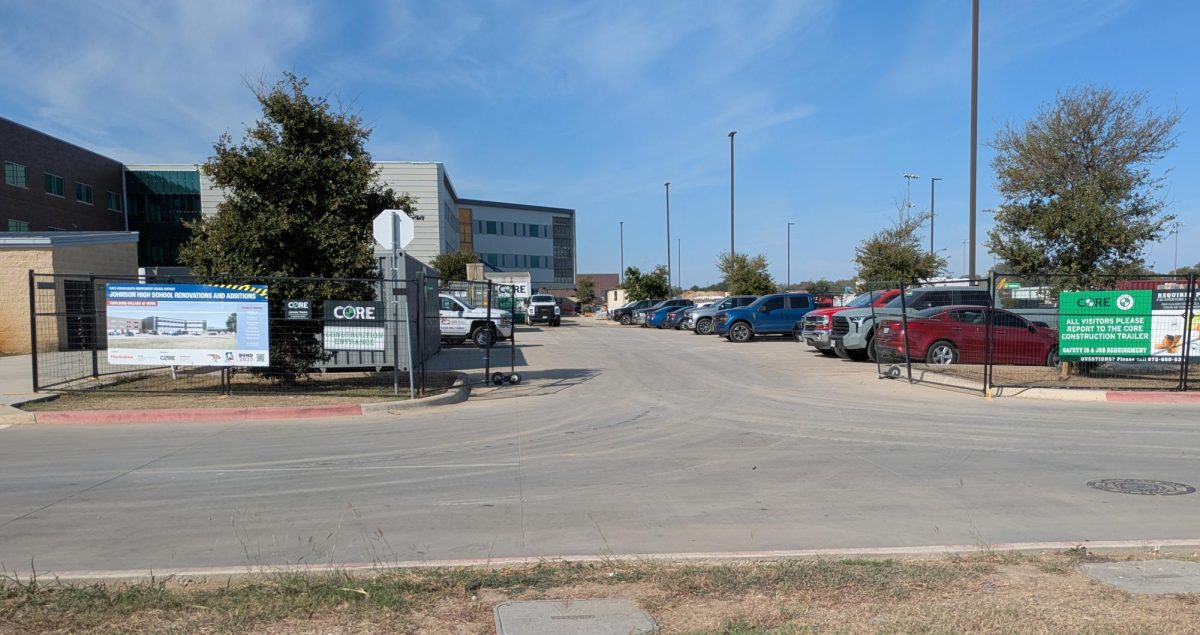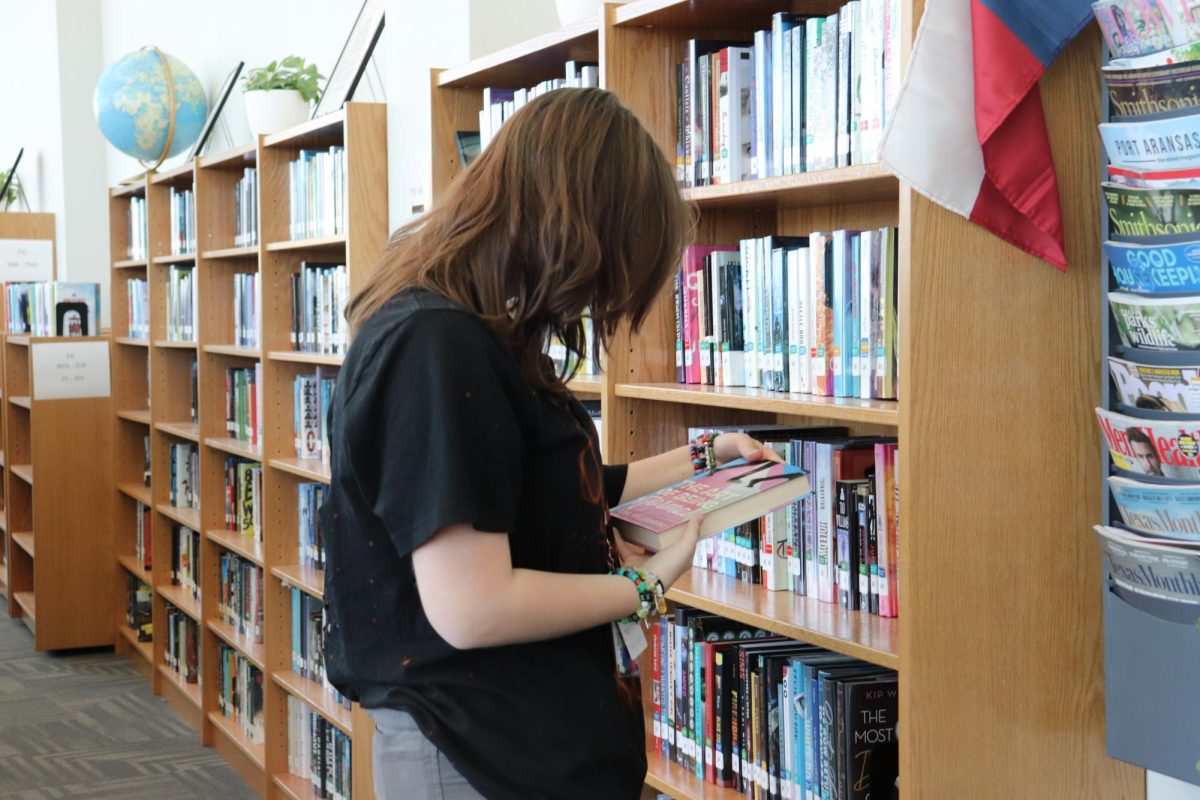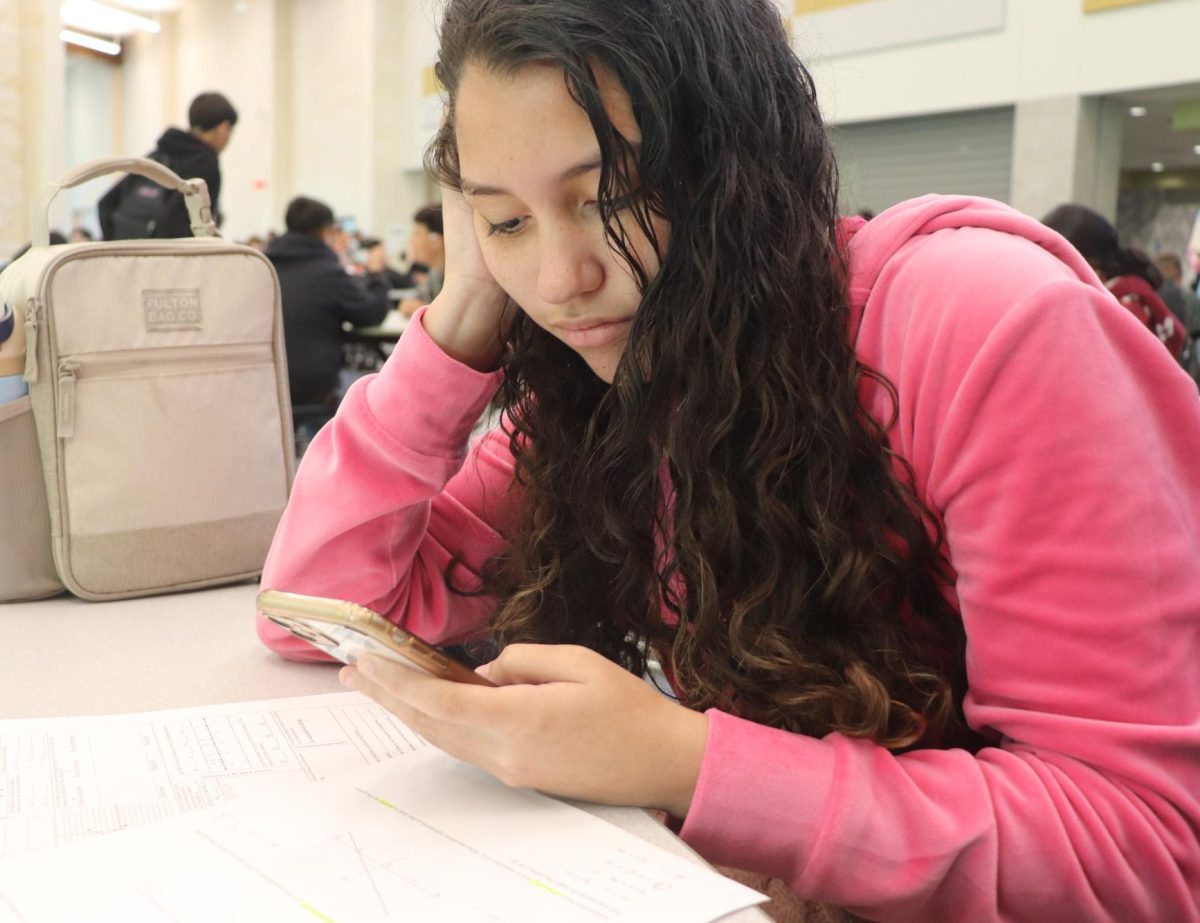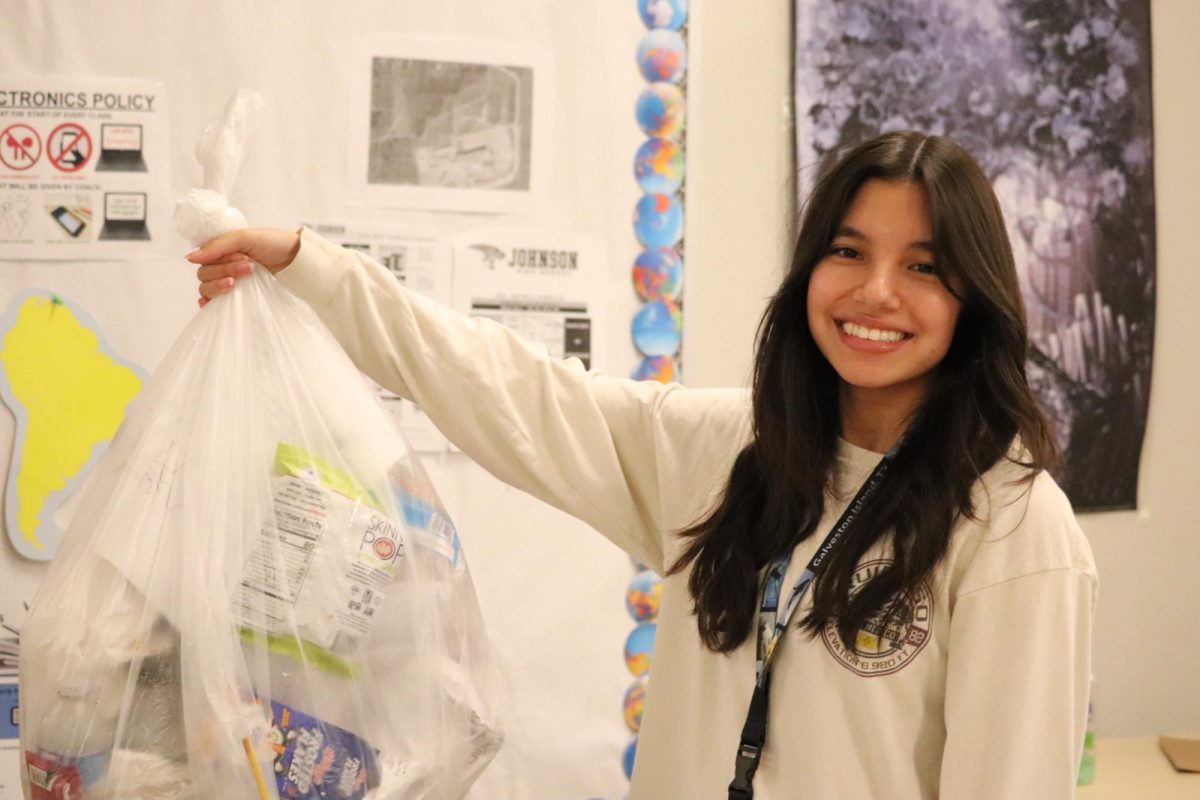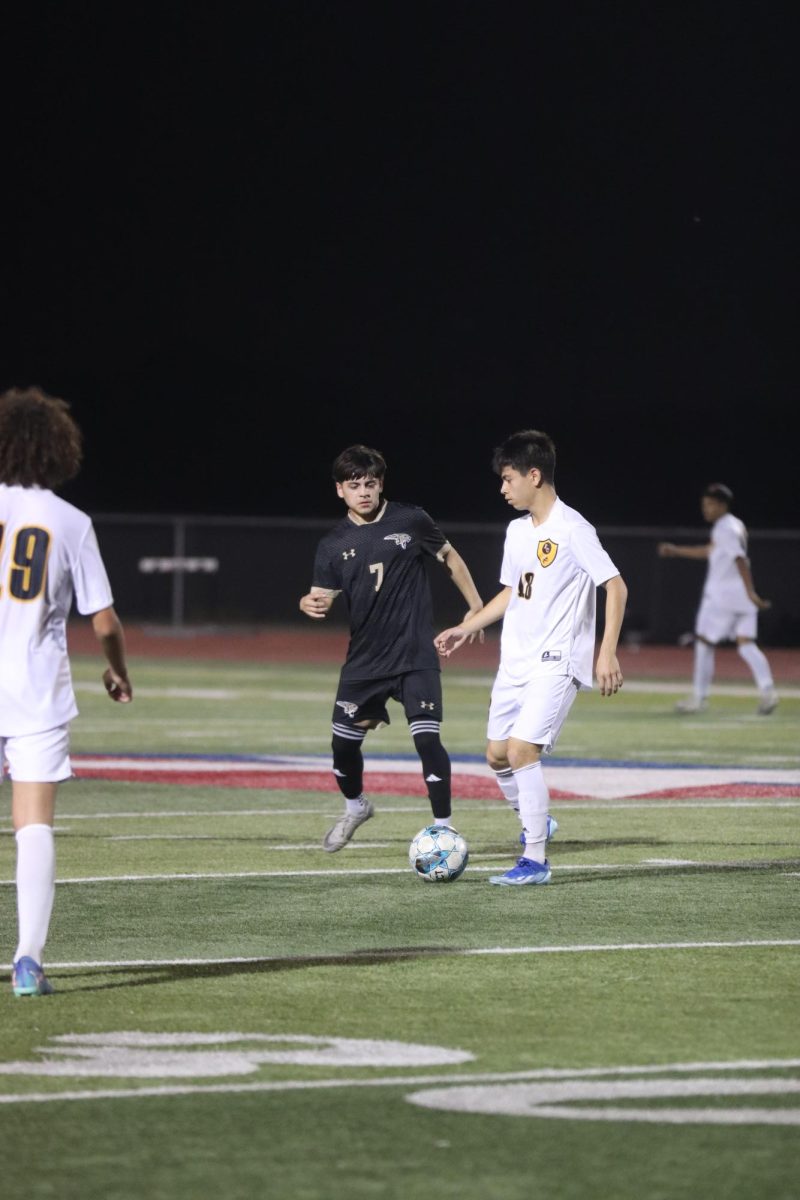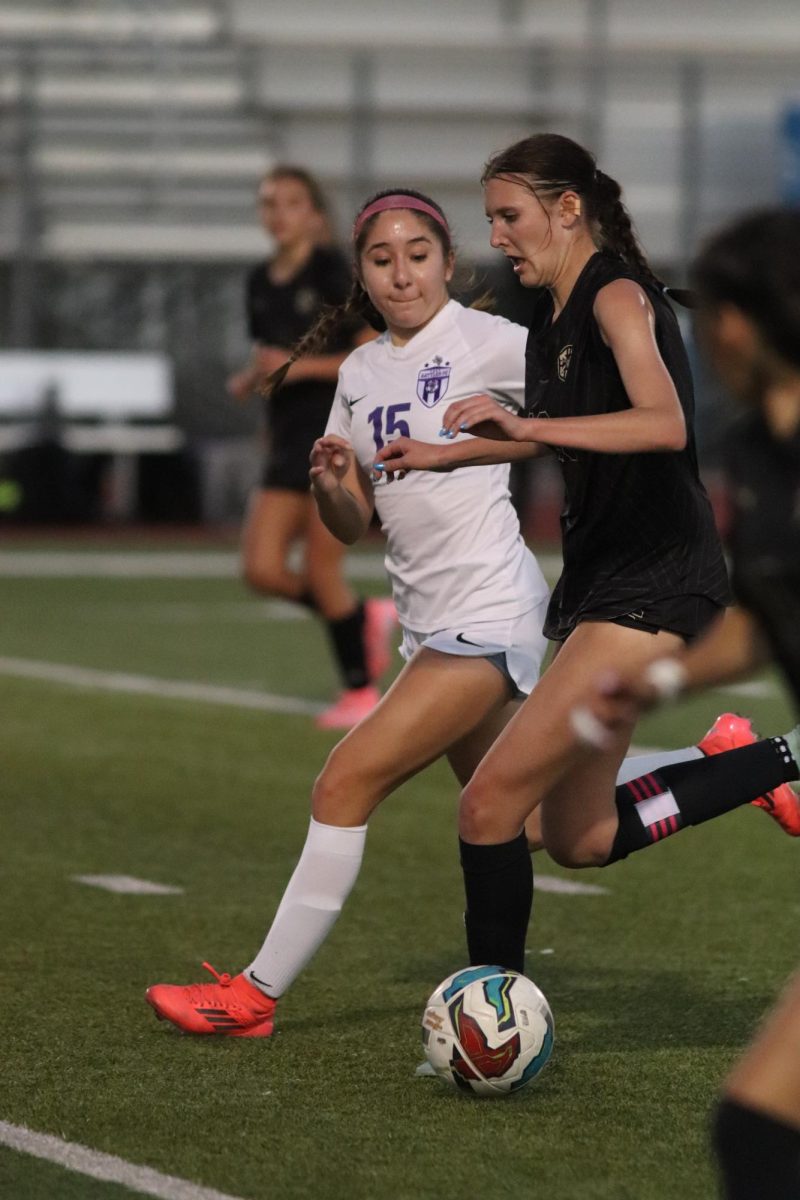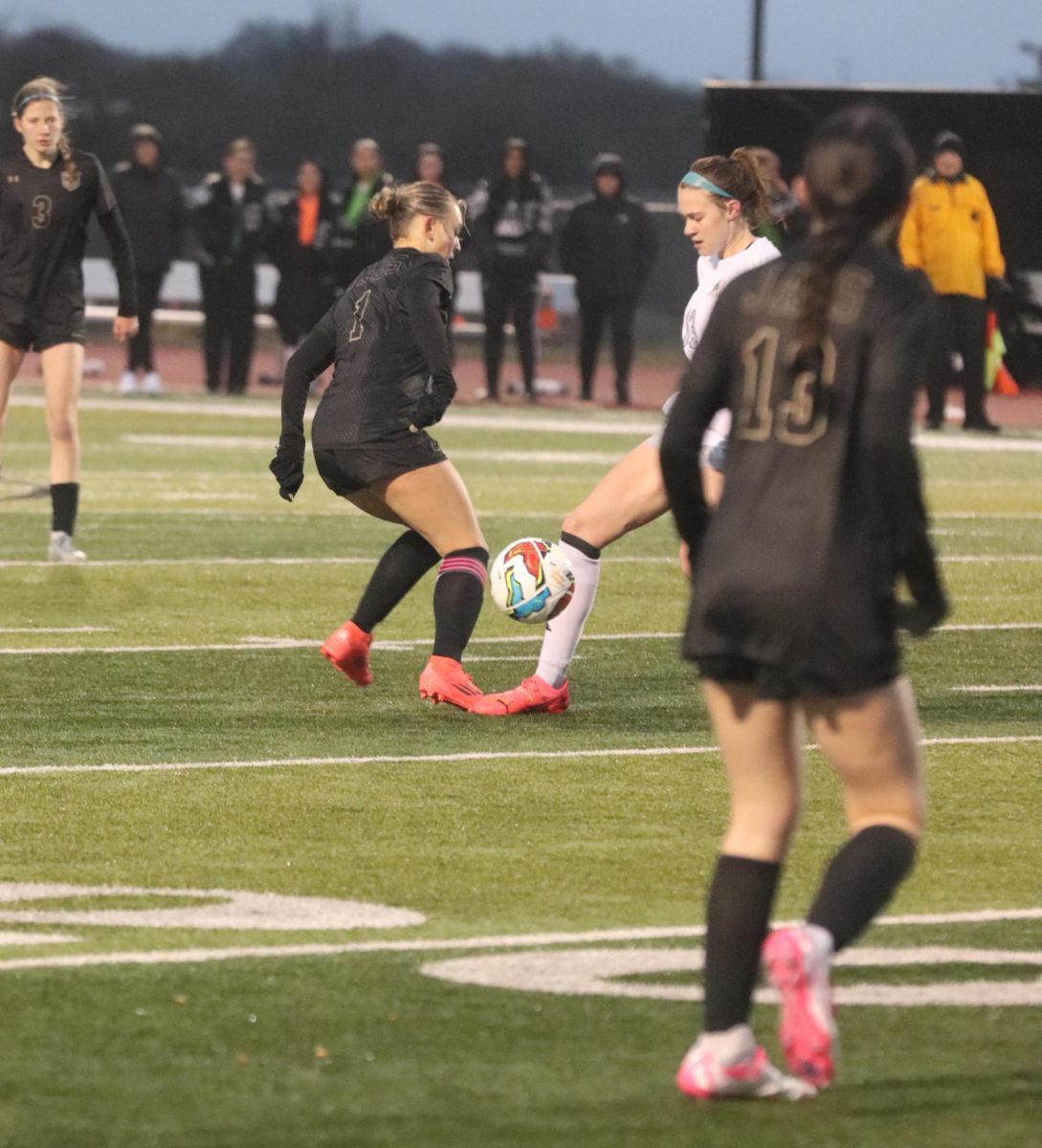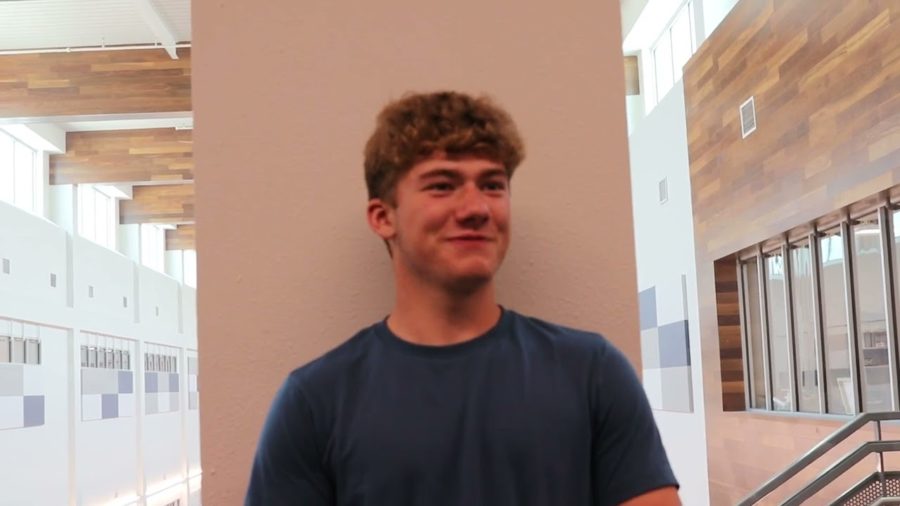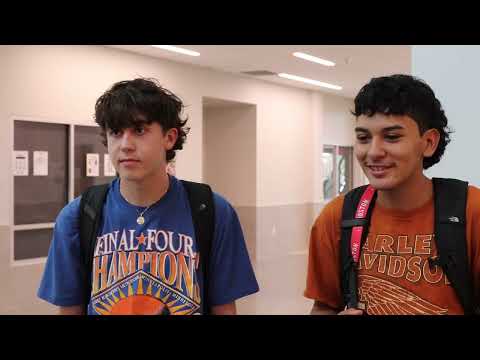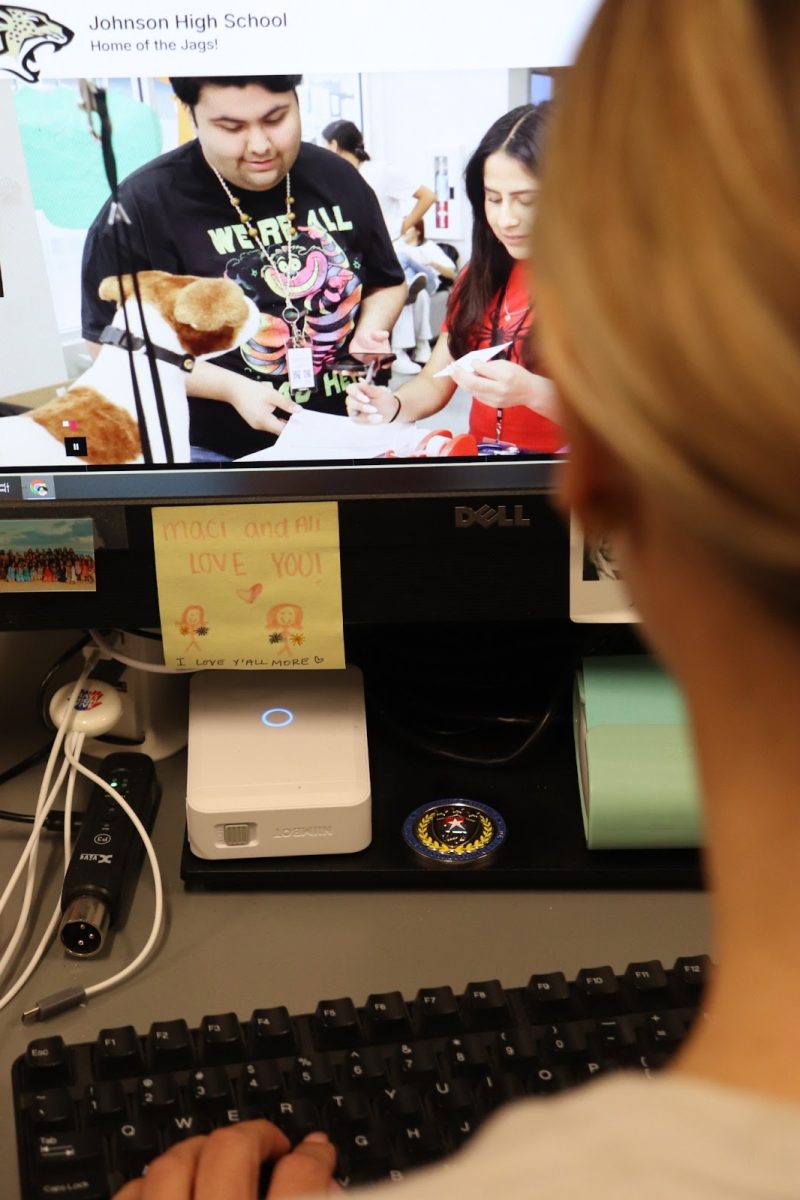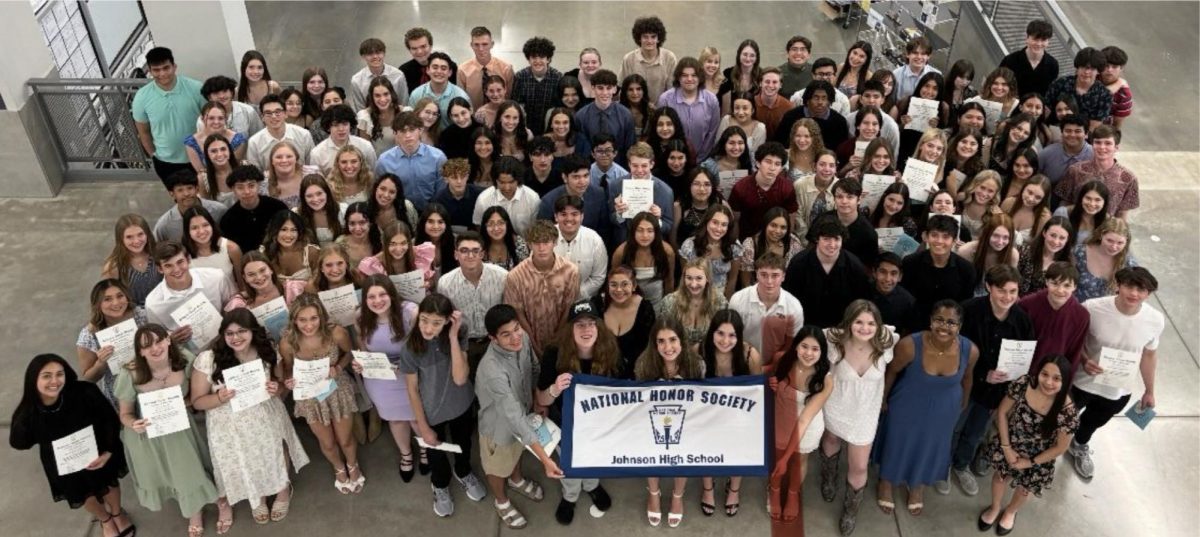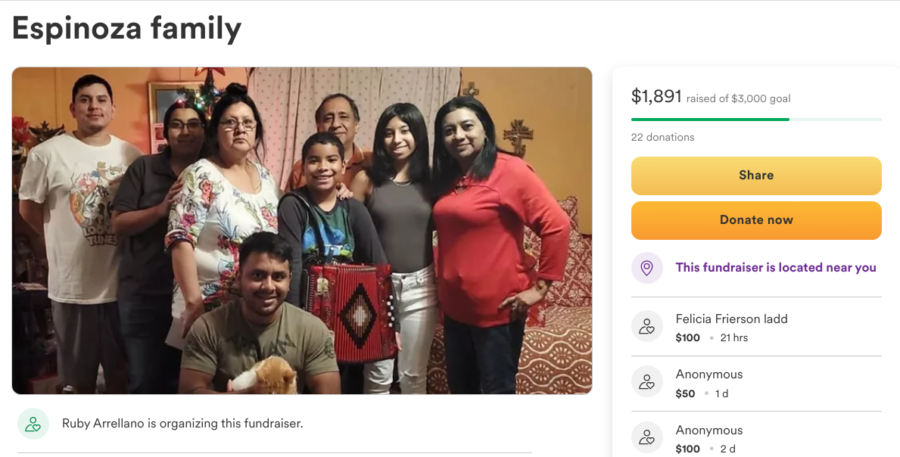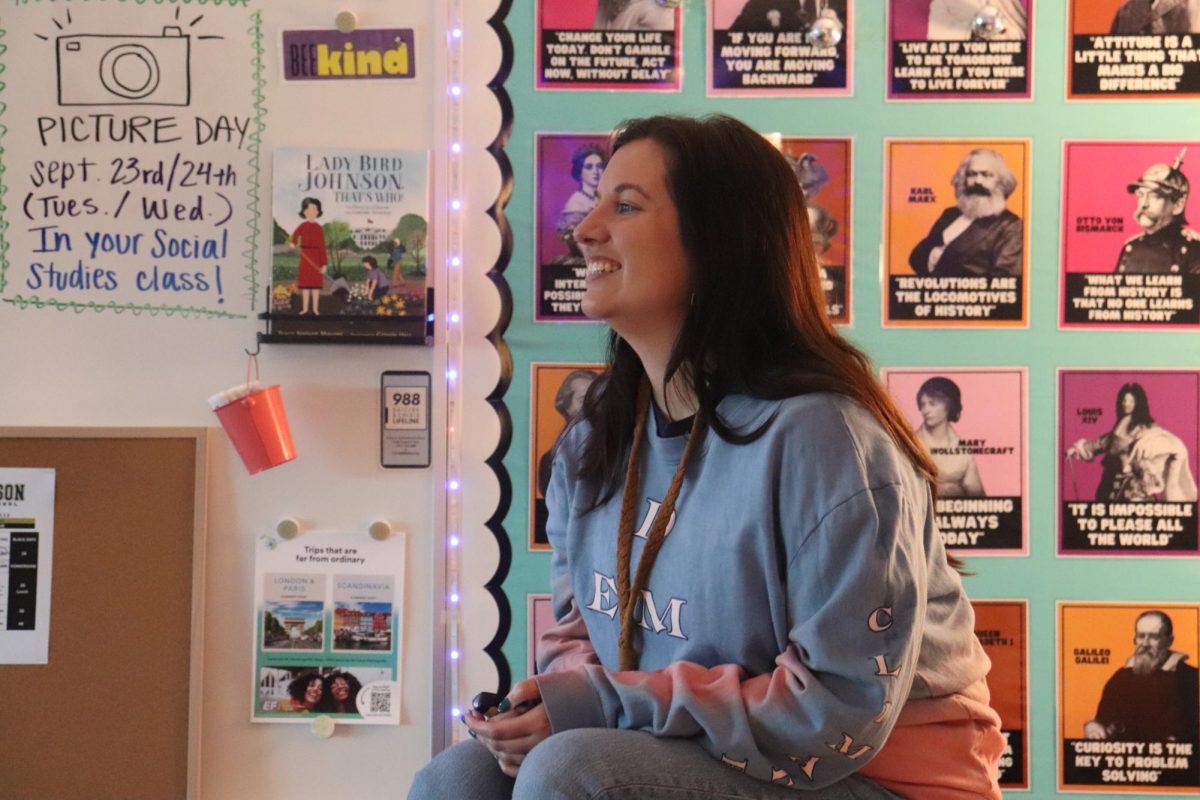Unheard Voices At JHS
Junior asks for donations, brings up low-income situation
GoFundMe page for the Hernandez family.
April 25, 2023
Junior Jennifer Hernandez doesn’t get a lot of sleep. Now, this is common for plenty of teenagers. Most teens can’t sleep because they’d rather watch Netflix or TikTok, or scroll through Instagram. Hernandez can’t sleep because she has to stay at the hospital most nights with her mom.
Hernandez has recently asked for donations through Leo Club in the homeroom slides in light of her family’s financial situation. The junior is accepting household items (paper towels, toilet paper, cleaning supplies) or non-perishable groceries in room 351, or students can bring items to their English class. She has also asked for money donations through a GoFundMe, which is linked at the bottom of this article.
“I just want at least a click of a share [of the GoFundMe] is the one thing I could ask for,” Hernandez said. “One small change can make a big difference in a tight situation, and I’m here for all of it.”
Hernandez’s mom, Lupe Hernandez, has suffered from stage four colon cancer since 2020, but on March 31, she found out that several tumors had spread to her brain. With the cost of treatment and their home bills, Hernandez’s family is unable to keep up with the financial costs.
“My mom is a strong, strong woman and I love the way she keeps fighting and never gives up,” Hernandez said. “I won’t stop fighting for my mom and I’ll keep trying to continue and strive for my family.”
Hernandez asked all her teachers if they could share her GoFundMe link with their classes, but one teacher went out of his way to help her. ELA 3 teacher Daniel Marakis went to Beki Treadway, another ELA teacher and the Leo Club sponsor, to see if Leo Club could do anything to help Hernandez’s family.
“If someone is willing to go out of their way to ask someone for help in that sort of situation, especially in high school, immediately, I can do whatever,” Marakis said.
Marakis points out teachers should try to make themselves available for situations by developing relationships where students feel comfortable sharing about their lives.
“Teachers come into contact with many different people from different backgrounds and situations,” Marakis said. “I think the most important thing for people in my line of work is to not make assumptions about people and where they’re coming from and to be open to people’s different experiences.”
Hernandez said she feels the teachers and staff should try to recognize the struggles people go through everyday. JHS crisis counselor Erica Ayuso expands on this.
“If teachers could learn anything, it would be to always know you never know what a kid has been through the night before. It could be anything from poverty to hunger,” Ayuso said.
A program run by the district is HaysHope2Go, which helps provide students who are economically challenged with food along with the Hays Clothes Closet, which provides clothes for applicants. The HaysHope2Go program has helped over a thousand families and provided over 100,000 meals. The school also gives students free and reduced meal discounts if they apply for it.
“Food insecurity is definitely one of the factors in low socioeconomic situations,” Marakis said. “You can’t be successful if you’re hungry all the time.”
In a 2023 poverty report by WorldPopulationReview, it was found that Hays County has an overall poverty rate of 15%. This is greater than Travis County, which has a rate of 8%.
“I started teaching in Chicago public schools and was faced with this sort of poverty that you only really see in movies, but that is here also,” Marakis said.
One of the main factors for low income in Buda comes from gentrification. Austin used to be popular for low-income families, but in the past years, families from the west coast, which tend to have more money, have been moving into low-income neighborhoods. This makes the housing costs more expensive than they used to be.
“People that used to have a foothold in this urban area sort of get pushed to the boundaries to places that are more affordable, and I see that happening at Hays,” Marakis said.
Another problem at Johnson that tends to confuse most people is bus transportation. Most low-income families are 45 minutes away from the school. The school buses leave the school at 8 a.m., so these students arrive late almost everyday.
“I worry about the message it sends kids when they get bused into this area and there’s no way they can make it to the beginning of their class,” Marakis said. “The non-verbal message it sends to them about their inclusion in the Johnson community.”
He claims it’s just a given that a handful of people coming from these far away areas, who happen to be coming from lower socioeconomic status, end up coming a little later to school. And he sees the effect it has on the mindsets of people.
“I think on one hand, there is the sort of beneficient, ‘Hey, let’s take people from dispirited socio-economic communities, this is the way to be inclusive!’,” Marakis said. “But it’s just very difficult because how does that community not become stratified just because of who’s becoming a part of it?”
These students are as much a part of Johnson High School as the football team, or cheerleading team, debate team or theater club. It’s hard to push for good academics and great behavior among students if no one’s going to help them get food, clean clothes or other basic necessities.
“It’s just something that we could as a community be more aware of and try to be as respectful as possible,” Marakis said.
Hernandez said she wants other students who face similar situations to know it may seem embarrassing, but it’s not.
“Look forward in one small step,” Hernandez said. “Make it worth it all, people need to see we aren’t always okay, and that’s fine, no one is. The more silent you are, the more trouble there is, the more help you won’t get.”
GoFundMe link: https://gofund.me/f4af4d94


